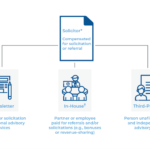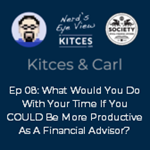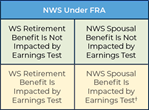First proposed in 1955 by Milton Friedman, an Income Share Agreement (ISA) is an alternative to traditional loans for students when funding their college educations. Instead of borrowing money, the student enters into an agreement with their school (or some other institution) whereby the student agrees to pay a percentage of their future earnings for a certain period of time. In other words, the student is effectively funding their education using equity (in themselves), rather than debt.
The upside of ISAs, at least in theory, is that as with other types of equity (vs debt) financing, the student can ensure that the payments to finance their education remain a reasonably manageable percentage of their income and avoid getting to a point where they can’t afford to pay their monthly student loan payments. The caveat, however, is that Federal student loans already have income-sensitive features to protect from student loan payments becoming unduly burdensome, and as it turns out Federal student loan programs are actually more favorable over ISAs for low-income students. Which means that, depending on the student’s specific circumstances, answering the equity over debt question may not be as simple as it seems.
In this post, Derek Tharp – lead researcher at Kitces.com, and an assistant professor of finance at the University of Southern Maine – examines Income Share Agreements, and delves into the question of how they compare to, and when they might be a better option, over a more traditional loan for students looking to finance college.
As a starting point for comparing the two options, we can calculate the difference in the net present values of cash flows resulting from utilizing an ISA versus taking out a student loan, with the important caveat that an income share agreement will have different rates and terms depending on a student’s major due to the variety of job outlook and projected earnings in different industries. So, for instance, an English major, whose rates and terms are on the less favorable end of the ISA spectrum, will receive different terms than an Aerospace Engineering major, which is on the most favorable end of the ISA spectrum.
Using some assumptions based on the ISA offered by the Purdue Research Foundation (a leading innovator in this new type of financing), hypothetical cash flow projections suggest that students will generally come out ahead when using a federal loan compared to an ISA. However, the case is less clear when comparing ISAs to private loans. Since private loans do not have some of the same income-sensitive features as Federal loans, ISAs can provide some downside protection, but can also do so at a significant cost assuming that a student eventually earns an income roughly average or above within their field.
The caveat, however, is that ISAs do provide a significant opportunity to engage in adverse selection (a problem which ISA providers must solve if these arrangements will be viable in the long-run)., Whenever students possess private information about themselves and their future career desires that a counterpart cannot possibly know (e.g., a desire to become a stay-at-home parent shortly after graduation or a desire to work in a field with substantially lower pay than is normal for a graduate with their degree… and thus don’t anticipate having any income which can be “shared” back to the lender), ISAs look relatively more attractive. Additionally, depending on how “income” is defined in an ISA (which appears to only be W-2 and Schedule C income in the Purdue agreement), ISAs may look attractive for students working in nontraditional fields or who can structure their income as something that does not meet an ISA definition of income (e.g., “passive” rental income is not treated as Earned Income for ISA repayment purposes).
The key point, though, is simply that although “equity financing” college with an ISA may seem to intuitively be a favorable alternative to student loans, the advantages don’t pan out when we start looking at the total costs and the impact they have on future cash flows. And while ISAs may provide some significant downside protection when compared to private loans, that protection comes at a material long-term cost if the student earns at least an average income in their field of choice. In other words, the answer to the question of when it would be better to finance a college education with “equity” in a student’s future earnings is a resounding: rarely. Instead, most of the time it’s better to simply engage in fixed-debt financing to fund a student’s long-term upside career potential!




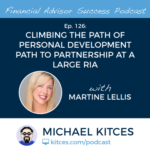
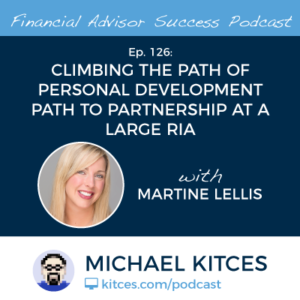 Welcome back to the 126th episode of Financial Advisor Success Podcast!
Welcome back to the 126th episode of Financial Advisor Success Podcast!